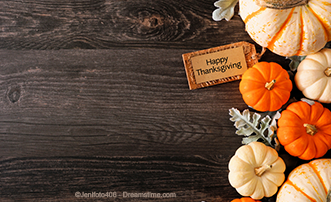The holidays are sneaking up on us and will be here before we know it! Holidays are typically a time of joy, gratitude, and quality time with family and friends. If your loved one is diagnosed with Alzheimer’s disease or another type of dementia, the holiday times may seem more taxing or stressful than usual. You are not alone. Many caregivers feel the stress of the holidays as they try to keep up with long-standing traditions. Here are a few ways to keep your loved one involved and prepare to enjoy the season as a caregiver as well.
Plan Ahead if Possible
As a caregiver, we know that things change quickly and often day by day—or even minute by minute! Think ahead about scheduling time with family members and what gatherings you plan on attending with your loved one. Your typical traditions may need to be modified to fit the comfort and ease of your loved one. For example, maybe there is a small get together for lunch rather than a late dinner. As always, prepare to be flexible as your loved one’s mood or condition for the day could change without notice.
Keep You Loved One Involved
Make sure to keep your loved one involved in activities, from simple conversations to cooking the meal or gift giving. Encourage your family members and guests to continue socializing with your loved one while together. It may mean a lot to your loved one to help prepare food, help wrap a present, or simply be involved in the planning of the event. Give your loved one small, manageable task to help with. This can help them feel valued and appreciated.
It’s Okay to Modify Tradition
You may be used to hosting the whole family crew for every holiday, but as a caregiver, think about what you are reasonably able to manage. If hosting brings you joy, it’s okay to invite a smaller group to host. This can prevent overstimulating your loved one (and yourself) and help cut down on stress levels as well.
Prepare Others if Necessary
If your loved one’s condition has changed since some of your family members or guests have seen them last, a quick conversation may be appropriate to prepare them on what to expect. Help them understand how it might be best to greet, involve, and socialize with your loved one with dementia. Let them know that your loved one is still the same person. It may be helpful to suggest conversation topics and activities to engage in or avoid.
Overall, as a caregiver, you know your loved one the best. Do what you can to keep them involved as much as possible and continue to make them feel valued and appreciated. Through all this, remember that a caregiver must take care of themselves also. Do not be afraid to reach out to family and friends or access respite resources if you need help or simply need a break. With all these tips in mind, you can make your holiday season as a caregiver more enjoyable and easier to manage for you and your loved one alike.
Source: www.alz.org/documents/alzheimers-dementia-holidays-ts.pdf



